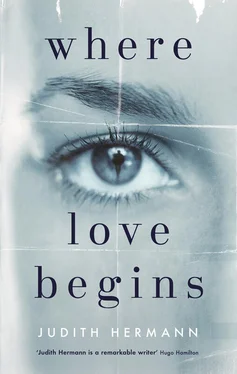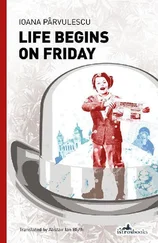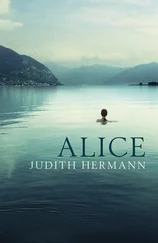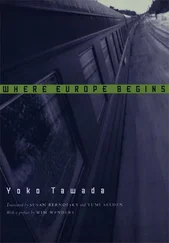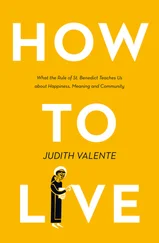Dermot closes the pill dispenser. He pulls his sweater sleeves down over his wrists — he always wears the same black sweaters, the wool at the wrists is always unravelled and full of holes — and looks at Stella, maybe slightly bemused but also surprised, forthright.
Did that happen to you? He says it as if he would be glad if it had happened to Stella.
No, Stella says, it didn’t happen to me. Maybe what happened to me with Jason was love at first sight, that’s what I had with Jason. But that’s not what I mean. I mean the opposite of that — the same feeling but with something destructive about it, something not good.
Dermot mulls it over.
Then he says, You mean coup de foudre. A Love Thunderstorm, that’s what you mean. The destruction comes from the lightning. From the force, the power of the lightning.
He smiles at that as if it were something quite wonderful. Wait. Wait a moment.
He gets up and goes from the kitchen into the living room, past the chaise longue, not touching Julia, he could straighten her blanket or touch her shoulder, but he doesn’t, and she doesn’t move; remains as this picture in soft colours, a woman sleeping. Stella watches as Dermot opens the drawers of his desk, rummaging around in a box for a while, putting it aside with a sigh, then going from there to the shelf and pulling out books. He blows the dust from their spines, opens them and closes them again, and finally comes back to the kitchen with a postcard. He pushes the pill boxes aside and puts the card down on the table in front of Stella.
A picture, an abstract painting, a figure the way Ava still draws them — a round head with braids, ears that stick out, and saucer-like eyes, from which arms and legs grow like feelers. The expression of the figure is sorrowful; she looks as if she had been bashed to pieces, destroyed and demolished, irreparably; nothing here can be healed. A bolt of yellow lightning flashes through the body. Arrows directed down from above, and in the background another figure, male and shadowy, one body and two heads.
Something like this?
Yes, something like that, Stella says haltingly. But maybe more the other way around. Is the girl with the braids experiencing the coup de foudre, the lightning? Or that shadowy figure in the background. The male figure. She points with her index finger to the two heads, to the head on the right.
You can see it either way, Dermot says. I don’t know. In any case, you can’t defend yourself against being loved.
Mister Pfister’s look at me must have been like this, Stella thinks. And now I’m like the girl in the picture; I’m falling.
Are you all right, Dermot says.
Oh yes, I’m all right, Stella says. I’m all right. I’m up against someone to whom this happened; you understand, this happened to him in connection with me.
She feels she is blushing, it embarrasses her to say this. I have to deal with it. I just have to learn how to deal with it.
Probably not easy, Dermot says. Oh my, this probably isn’t easy.
That’s all he says. And there is nothing more to say, Stella thinks. They sit together in silence and listen to the pounding of the construction workers, pounding on wood, stone and concrete, repeated, like a vague request to be admitted, a notification of some difficult task, and even if it’s just one single word.
Julia turns over on the chaise longue. Stella listens, but Julia doesn’t call her.
I think you always have to try to come to some arrangement, Dermot says. He says it as if he had thought about it for a while already. To find a midpoint between sympathy and indifference. Indifference is very important. I don’t mean coldness, I mean something more like cool-headedness, composure. Maybe you shouldn’t take it to heart? All this will pass, that much I can tell you.
Stella nods. Suddenly she has to think of Jason as clearly as if he had called out to her. As if he were falling from the roof at his construction site and calling to her. She has to think back to her first sight of Jason — serious and angry, on his part as well as on hers. Serious and angry; one of them shrank back from the other, and for the first time she realises that this is how it was.
She would like to ask Dermot whether he remembers his first glimpse of Julia. A glimpse that goes back more than sixty years. But she doesn’t have the nerve. She repeats his last sentence like a question, and she can tell from the expression on Dermot’s face as he turns around, that this isn’t the truth either. Not something that one could know with finality, once and for all. Not something for always.
*
That evening she is sitting at the kitchen table with Ava; they’re eating together. White bread and green tomatoes. Ava tears the bread up methodically and completely, drinks her juice in thirsty swallows; in kindergarten she drew a cat with long whiskers and big eyes. The cat now hangs on the wall above the chest. Stella can see the wild meadow through the window, storm clouds over the wild meadow. It’s not yet late; in spite of that, almost dark. Ava was allowed to light the candle on the table.
She says, The cat looks stupid.
She says, I would always like to sit next to Stevie in the morning circle. Always. I never want to sit anywhere else in the morning circle. Do you know what Stevie wants to be?
No.
A fireman. Ava leans across the table and whispers. He wants to be a fireman or a spy.
Aha, Stella says. Something about Stevie seems odd to her, and Ava senses it; she frowns angrily and changes the subject. I’d like to take a bath. And I don’t know at all what I should wish for my birthday. What should I wish for my birthday? I want to have a garden party. Go to the circus. Do you think the cat looks stupid? I like it when we sit in the dark. Oh, I wish it would rain soon.
Ava turns to the window.
Stella says, I think the cat looks clever. Like a magician. The doorbell rings. Hard, long and decisively.
Ava says, That’s Papa. Is that Papa?
She says it without turning around, and for one unreal moment Stella thinks that Ava knew the bell would ring. That she turned to the window so that Stella couldn’t see her face.
Stella says, No that isn’t Papa. Papa has a key. He never rings the bell.
Ava waits, listening. Then she does turn around to Stella and puts her hands on the table, looking at Stella, subdued; she sits there very quietly.
Why don’t you open the door.
Because we don’t want any visitors. We don’t want any visitors, do we. It’s late, we’re just having supper, you have to go to bed in a little while, you still want to take a bath, we have to pack your little bag because tomorrow we’re going to see Papa; we have no use for visitors now.
But who’s ringing, Ava says. Who’s ringing? She looks so alert, so wise; her eyes are shiny, round and strange.
Somebody or other, Stella says testily. Somebody or other, somebody we don’t know and don’t want to get to know. I don’t ever want you to open the front door without me, not the house door and not the garden gate either; do you hear what I’m telling you? Do you understand me?
But why don’t we want to get to know anybody, Ava says. She simply ignores Stella’s question. Why not? Maybe it is better if you let him in and we can get to know him then.
Ava, Stella says.
She tries to imagine it. Simply to imagine it. Mister Pfister in the kitchen. In this kitchen next to Ava, sitting at the table. It’s of course impossible.
She says, That’s not possible; it’s impossible; you have to accept this even if you don’t understand. We have to wait and see. See how it will go on from here.
But I do understand, Ava says. I understand it exactly. And the cat does look stupid, I drew an ugly cat. I know that, and you know it too.
Читать дальше
